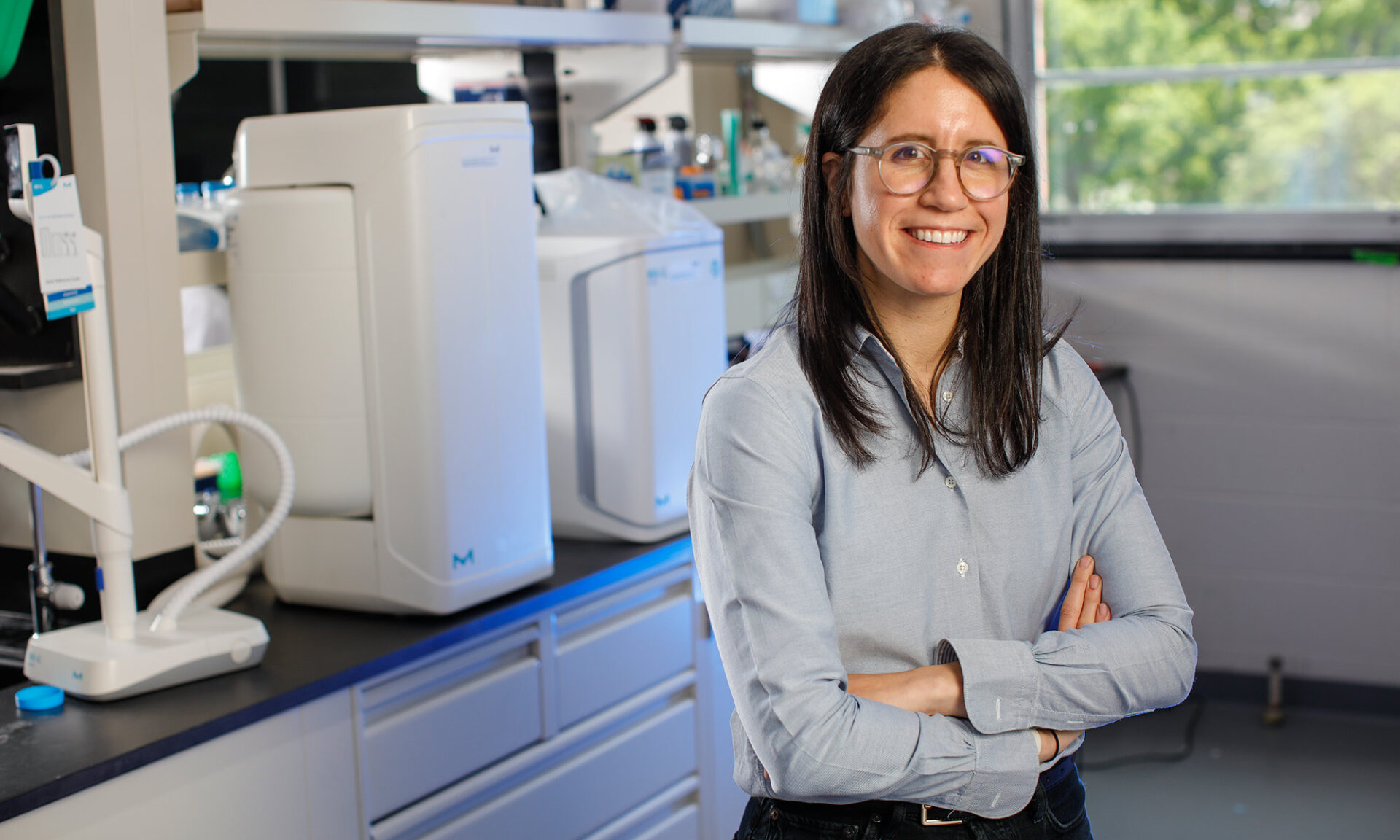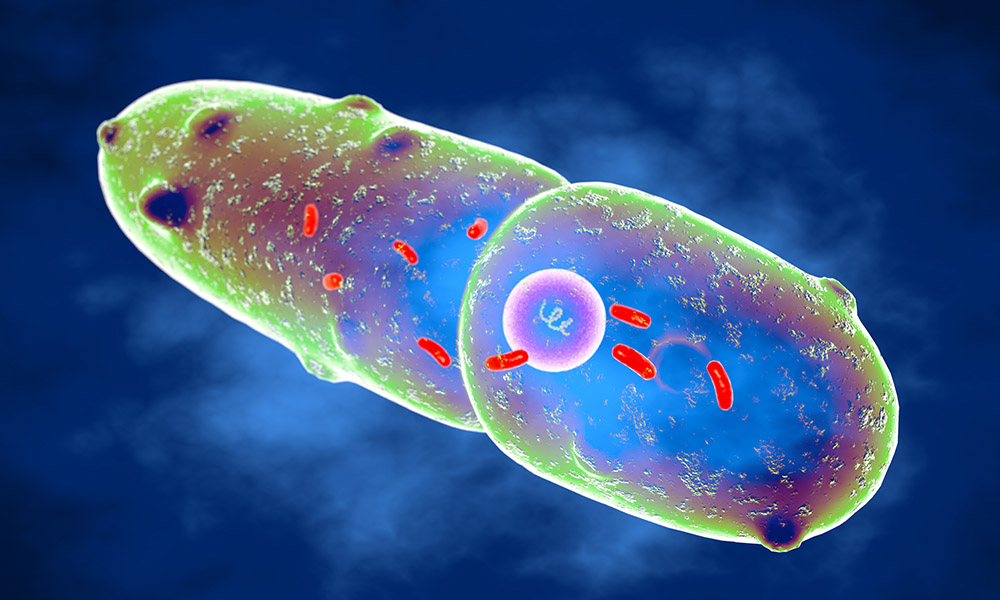Lopatkin is one of 22 early-career scientists selected nationwide to explore some of the most pressing questions in human health and medicine.
Allison Lopatkin ’13, an assistant professor of chemical engineering, biomedical engineering, and microbiology and immunology at the University of Rochester, is one of 22 scientists selected to join the Pew Scholars Program in the Biomedical Sciences this year. The program provides early-career scientists four years of funding to explore some of the most pressing questions in human health and medicine.
The funding will help Lopatkin’s lab explore how changes in bacterial metabolism contribute to the development of antibiotic resistance. She says that decades of antibiotic overuse—in both clinical and agricultural settings—have led to an alarming rise in bacterial strains that are resistant to antibiotics, contributing to a major public health concern.
“Currently, the study of antibiotic resistance mechanisms focuses mostly on a small handful of highly conserved intracellular targets that reduce antibiotic-target binding,” says Lopatkin. “However, as a postdoctoral fellow, I discovered that many bacteria can also escape the effects of these drugs by amassing widely diverse mutations that interfere with their metabolism.”
Using a suite of sophisticated tools integrating microbiology, biochemistry, and quantitative and computational biology techniques, Lopatkin’s lab will identify the drug-resistance mutations that arise in bacteria as they adapt to combinations of different antibiotics and metabolism-altering chemicals.
“These insights will allow us to determine how microbial metabolism contributes to the development of antibiotic resistance in real-world clinical contexts,” says Lopatkin. “This work will facilitate the development of improved diagnostic and prognostic tests for assessing antibiotic susceptibility, as well as novel classes of infection-fighting drugs.”
Lopatkin joins a community of more than 1,000 scientists who have received awards from Pew since 1985. She was chosen from 198 applicants nominated by leading academic institutions and researchers across the United States.
Prior to Lopatkin, the University’s most recent Pew Scholar in Biological Sciences were Edward Brown (2007), associate professor of biomedical engineering and neuroscience, and Laura Calvi (2005), the SKAWA Foundation’s Professor of Medicine in the Division of Endocrinology and Metabolism and Vice Chair for Basic & Translational Science for the Department of Medicine.
For a complete list of this year’s scholars, go to the Pew Charitable Trusts website.





